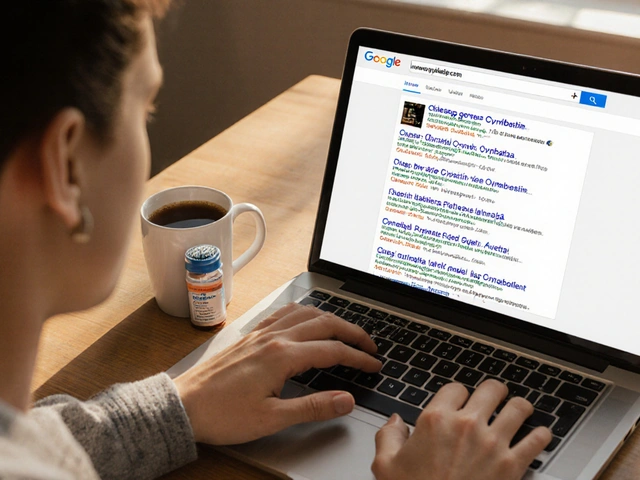Understanding Caffeine's Role in Nausea
Before diving into the impact of caffeine on nausea, it's important to understand what caffeine is and how it affects our bodies. Caffeine is a natural stimulant most commonly found in coffee, tea, and soft drinks. When consumed, it stimulates the central nervous system, making us feel more alert and awake. However, excessive caffeine consumption can lead to various side effects, one of which is nausea.
Caffeine can cause nausea by irritating the stomach lining, leading to an increased production of stomach acid. This can result in a feeling of discomfort or even pain, making you feel nauseous. Additionally, caffeine can also affect our gastrointestinal system by speeding up digestion, which can further exacerbate the feeling of nausea. In this article, we will explore the impact of caffeine on nausea and provide some tips on how to find a balance between enjoying your daily cup of coffee and avoiding these unpleasant side effects.
Identifying the Symptoms of Caffeine-induced Nausea
It's essential to recognize the signs and symptoms of caffeine-induced nausea to address them effectively. These symptoms can vary from person to person, but some common signs include:
- A feeling of uneasiness or discomfort in the stomach
- An urge to vomit
- Dizziness or lightheadedness
- Increased salivation
- Increased heart rate or palpitations
- Abdominal pain or cramping
If you experience any of these symptoms after consuming caffeine, it's important to take steps to minimize these effects and find a balance that works for you.
Reducing Caffeine Intake to Prevent Nausea
The most straightforward way to address caffeine-induced nausea is to reduce your overall caffeine intake. This may involve cutting back on coffee, tea, soft drinks, or other sources of caffeine. Consider trying the following strategies:
- Switch to decaffeinated coffee or tea
- Opt for herbal teas that are naturally caffeine-free
- Limit the number of caffeinated beverages you consume per day
- Gradually decrease your caffeine intake to avoid withdrawal symptoms
By reducing your caffeine consumption, you can minimize the risk of experiencing nausea and other side effects.
Choosing the Right Time to Consume Caffeine
Another factor to consider when trying to find a balance between caffeine consumption and avoiding nausea is the timing of your caffeinated beverages. Drinking coffee or tea on an empty stomach can exacerbate feelings of nausea, as the caffeine can cause irritation to the stomach lining.
To minimize this risk, try consuming your caffeine after a meal or a light snack. This can help buffer the effects of the caffeine on your stomach and reduce the likelihood of experiencing nausea. Additionally, consider avoiding caffeine consumption late in the evening or before bedtime, as it can disrupt your sleep and potentially worsen feelings of nausea the following morning.
Managing Stress and Anxiety
Stress and anxiety can also play a role in exacerbating feelings of nausea after consuming caffeine. Caffeine can increase the release of stress hormones in the body, which can heighten feelings of anxiety and, in turn, contribute to nausea.
To help manage stress and anxiety, consider incorporating relaxation techniques such as deep breathing exercises, meditation, or yoga into your daily routine. Regular physical activity can also help reduce stress levels and improve overall well-being. By addressing stress and anxiety, you may find that your caffeine-induced nausea becomes less severe or frequent.
Trying Alternative Sources of Energy
If you find that caffeine is causing you too much discomfort, consider trying alternative sources of energy to help you stay focused and alert throughout the day. Some options include:
- Consuming a balanced diet rich in whole grains, fruits, vegetables, lean proteins, and healthy fats
- Staying hydrated by drinking plenty of water throughout the day
- Getting regular physical activity to boost energy levels and improve overall health
- Ensuring you get adequate sleep each night
- Trying natural energy-boosting supplements, such as ginseng or rhodiola
By exploring these alternative sources of energy, you can reduce your reliance on caffeine and potentially avoid the unpleasant side effects of nausea.
Conclusion
While caffeine can provide a much-needed boost of energy and alertness, it can also lead to feelings of nausea for some individuals. By understanding the impact of caffeine on nausea and implementing the strategies discussed in this article, you can find a balance that allows you to enjoy your daily cup of coffee or tea without experiencing unwanted side effects. Remember, it's essential to listen to your body and adjust your caffeine intake accordingly to maintain optimal health and well-being.








I drank three espressos before breakfast and still threw up. Caffeine is a scam. I don't care what your blog says. My stomach knows better. I'm done. No more.
Let us not overlook the geopolitical implications of caffeine distribution networks. The CIA has long weaponized coffee culture to destabilize developing nations. Your 'balance' is a capitalist illusion. The real enemy? The Colombian cartel-funded barista-industrial complex.
You say 'reduce intake'-but have you considered that nausea is your body's evolutionary warning system? Caffeine is a neurotoxin. Your body isn't broken. You're just finally listening. Stop fighting it. Quit cold turkey. Your liver will thank you.
I tried decaf... and then I woke up with my coffee mug in my hand... and the pot was empty... and I had no memory of pouring it... I think the coffee ghost is haunting me. I'm not crazy. The beans are whispering.
You Americans think you can fix everything with a snack and a yoga mat. Meanwhile, in real countries, we drink black coffee at 5 a.m. and go to war. Nausea? That’s just your weak constitution talking.
I’ve been tracking my coffee intake since 2018. I’ve noticed a pattern. Every time I drink espresso after 2 p.m., my cat stares at me differently. And last Tuesday? My toaster hummed the national anthem. Coincidence? I think not. ☕👁️
Cut back slowly. Hydrate. Eat protein. Move your body. You don’t need to quit. You need a plan. And you’ve got this.
Caffeine is the new opium. The elites don't want you to know that your morning latte is a tool of control. They sell you a false sense of productivity so you'll keep working 80-hour weeks while they sip their organic, fair-trade, blockchain-certified beans on their private islands. Wake up.
I switched to matcha and now I’m not nauseous 😌 and I still get energy 💪 and my skin is glowing✨ honestly try it? it’s like coffee but… gentler? 🌿
You people act like caffeine is the enemy. My grandfather drank 12 cups a day and lived to 98. He also believed in ghosts and spoke to his cow. Maybe your problem isn't the coffee. Maybe it's your fear.
I used to think I needed coffee to function. Then I started walking in the morning. The sun on my face, the quiet, the rhythm of my steps… I realized I wasn’t tired. I was disconnected. Coffee was just a band-aid.
Caffeine isn't the villain-it's the mirror. Your body's reaction is a whisper from your autonomic nervous system screaming, 'Hey, you're running on fumes and regret!' The fix isn't just cutting back-it's rebuilding your circadian rhythm, your hydration game, your sleep hygiene. It's holistic. It's hard. But worth it. I went from 6 cups to 1, and now I sleep like a baby and my anxiety is 80% gone. You got this.
I’ve noticed that my nausea only happens when I drink coffee right after skipping breakfast. Maybe it’s not the caffeine alone? Maybe it’s the empty stomach? I started eating a banana before my latte and… it’s better. Just sharing what helped me.
I used to be the guy who drank coffee at midnight and called it 'productive.' Then I realized I wasn't being productive-I was just wired. Now I drink one cup after lunch, and I feel like I’ve been given a new brain. Not because caffeine is evil. But because balance isn’t about elimination. It’s about harmony.